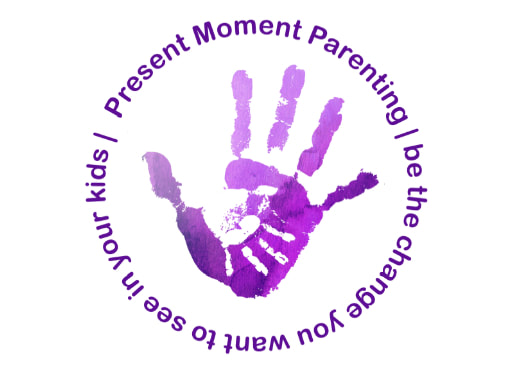Transcript of the podcast:
Here is the email I received...
I'm enjoying listening to your podcast and I had a topic that I am struggling with and wanted to write to you about.
The question is about toddlers listening or should I say not listening. My daughter is 2 years and 9 months old and she just doesn't listen. I'm sure you hear this a lot from parents.
I've tried everything I can think of. I usually start with speaking very gently but firmly in a respectful way and by the 10th time I'm super annoyed and angry. In these moments of being angry I want to say things like "why don't you just listen?" but I know better, so I bite my tongue. I try ultimatums and these sometimes work but is this really the most ideal way to handle these situations?... bribing? it doesn't feel right to me. If you do X I will give you Y.
From something as simple as getting ready to bath. I realize my little one is getting older and she is developing more of a sense of self, but it was like a switch flipped at some stage this year and suddenly she has gone from listening and doing to not listening at all.
What is another way I can approach these situations? I would like to feel more of a team sense between us as it's just myself and my daughter no father.
Firstly thank you for listening to my podcast. I hope you've also joined our Present Moment Parenting group on Facebook. When we embark on a journey of respectful parenting it can sometimes feel like we are alone in being respectful and yet still getting everything done in a day. But as I mentioned at the start of this podcast I am certain that everyone who has ever had a toddler can relate!
A switch does go off at around this age. Some people call it the terrible twos but that label really makes it seem like our kids are out to get us and are purposefully being difficult. They're not. I truly believe that all children are naturally cooperative. They want to please us and this is true from an evolutionary survival point of view as well as from a biological and emotional attachment view. I prefer to call the change that happens that this age the scientist switch. As our children grow they realise more and more that their actions have consequences on the world around them and on other people's behaviour. They really need to test out this power and see the scope of what they can and can't do.
This doesn't mean that they want to be all powerful. Even as adults we become afraid and overwhelmed if we think that everything we do can impact the world massively and particularly if the impact is negative. A good example of this is the first time we hear our toddler repeat a swear word we've said and realise that every little thing that comes out of our mouths is being heard and emulated. What a responsibility! It’s terrifying. So while our children want to test their power they really don't want to know that they have the power to drive you crazy! That is far too much responsibility to put on their little shoulders.
So what we want to be doing is showing them that there are limits, expecting them to test those limits over and over again in any creative way they can think of and calmly reminding them of where the boundaries lie.
This does not mean being a saint. There is nothing in respectful parenting practices that requires us to be martyrs. The way to look at it is that in authoritarian styles of parenting the parents needs always matter most. In permissive parenting it's the child's needs that are paramount. In respectful parenting we acknowledge that we are both equally worthy human beings with equally important needs and desires and we do our imperfect best to respect both ourselves and our children simultaneously where possible.
This means that we don't ask nicely 10 times and then crack. We ask once.
Ideally we would first catch our child's eye. Engage with her for a moment. Get her to smile. Connect. Then, when you know you have her friendly attention let her know what needs to happen. First connect then direct.
"It's time for your bath now"
Instead of asking her to come and bath, tell her what you expect and then expect cooperation. Asking often leads to pleading which leads to frustration which leads to disrespectful relationships.
So… “It's time for your bath” rather than “please come and take a bath”.
She will pick up on any doubt or fear that you have about your ability to gain her cooperation. Only give a choice if you're genuinely prepared to accept both options. Being respectful means being honest about whether there's a choice or not. If there's no option not to bath then don't ask it as if there is. Tell her what is about to happen... ie you're going in the bath now. Not please will you get in the bath if you feel like it. That's deceptive. You're hiding a demand in what sounds like a request. And then getting frustrated when she doesn't do what you want. Be clear and honest. The bath has to happen. There isn't a choice here.
What you can do is offer a choice of how she’s going to get to the bath:
"Would you like to walk yourself to the bathroom or do you need my help? "
If she then doesn't go and doesn't answer you can assume that she'd like your help. Let her know what you're up to.
"I see you need my help this evening, I’m going to pick you up now and carry you to the bathroom" and pick her up and take her to the bathroom. Calm. Confident. She will most likely have some strong emotions that go along with this. That's OK. You know they're coming and you're prepared. Hear her out. Acknowledge how much she doesn't want to bath.
If you're in the mood (and don't pretend to be in the mood if you're not) you could make this playful:
"Do you want to walk to the bathroom or should I race you there? "
Another tip would be to link things she doesn't want to do to things that she does. I had a similar issue with my daughter at around this age and I thought… I could keep trying to persuade her to do what I want but the truth is that out of the two of us I'm the only one with a high value on cleanliness. So I thought about what she values. Her favourite thing at the time was dinosaurs. So I'd get my playful hat on and whisper "Hey Kai. I heard that there is a dinosaur party in the bath and they are just waiting for you to hop in and crack open the bubbles". She'd then race to the bath as fast as any dino-loving child could and I would have thrown all plastic dinosaurs in to bath with her.
Now I must be clear that this is not bribery. Bribery is when we get someone to do something they don't want to do by promising a treat of some other kind. It works short term but kids quickly see through it and either start demanding stuff beyond what you can offer or just not caring about anything you offer. It doesn't work long term and inevitably breaks down your relationship which is your number one tool for engaging cooperation.
The dinosaur bath is an example of genuinely looking for the place where my values meet my child's values. It's a win-win. I want her to bath and she genuinely wants to bath too... now that she knows it will be fun. Toddlers are all about play and we often forget to value this very important aspect of their world's.
But to be clear, you don't always have to be playful. Sometimes you won't be in the mood and I truly believe that we should be authentic with our kids. Sometimes things just have to be done even if we don't really want to do them. I don't want to take the garbage out but if I don't my house is going to stink. There it is. Life. Garbage and baths need to happen. And we have a right to moan about doing them but we still need to do it.
Your daughter needs to know that she can express herself fully and openly without it throwing you completely off kilter. Hear her. Love her. Have a day on the weekend where you don't bath. With my kids we had stinky Fridays and we all enjoyed the extra time it gave us. But the rest of the time baths need to happen. If you stay calm and consistent she will learn that some things still happen even if we don't like them but that my mother will be open to all my strong emotions. Often these don't even have to do with the situation at hand, but the bath etc just serves as a trigger to release other pent up emotions. This is good. Rather out than in.
She's not going to do everything you want all the time. She isn't a robot. But if your relationship is solid then her desire to be like you and to please you will remain intact. Again this doesn't mean she'll listen every time because her scientist switch is on and she wants to experiment with many different behaviours and see what happens. Acknowledge that limit testing is a valid experiment for her at this time and you are providing the boundaries of the experiment. If your boundaries keep changing then she'll have to keep repeating the experiment to see what's going on.
People often think that respectful parenting means that we never override our children's desires. By for example putting them in the bath when they don't want to go. But this is not the truth. Trying and trying to persuade kids to do or not do something that we have a boundary around never leads to a respectful relationship. When we don't respect the boundaries we've put in place for our children then we become frustrated and tired and overstretched. Then we explode and then feel guilty and resentful. This is not respectful of ourselves or our children and leads to breakdowns in our relationships.
My mother was on an International flight once that was delayed by four hours by a toddler who refused to wear the seatbelt on the plane. Eventually her and her mother had to be removed from the flight, they had to take all the baggage off and have everyone identify their bags. It was a nightmare for everyone involved. That is not respectful – of the child, who will now miss out on whatever family experience she should have been having, on the mother, on a flight crew and all the other passengers. We don’t do our children any favours by having them be so demanding and hold a position of authority over everyone else in the world. This is the making of a dictator. And that child’s life will not be improved by being hated (which in this situation she was). Our children need to learn that there are boundaries to our actions. We all have them. Children thrive with boundaries. We all do. Think about living in a totally lawless society – you would always be on edge, wondering if you were going to survive, what was going to happen next, never able to fully relax. This is how our children feel when there are no, or shifting, boundaries.
Respect means acknowledging the frustration of not always being able to do what you want when you want to. Respect means being present so that we know we’re responding to the actual situation and not reacting from our own past trauma or conditioning. Respect means guiding your child into appropriate behaviour when she’s not able to do this for herself.
So to sum it all up…
Be present, be consistent, have clear boundaries, be calm and in control, and if possible, have some fun. Oh and forgive yourself when you totally screw it all up. We all do. There will always be another opportunity to try again.
I wish you and your daughter many enjoyable moments together.
If you have any questions, remember to send them to me at [email protected]. I also do one-one-one Skype and WhatsApp sessions and online courses, so please take a look through my website if you need any help along your parenting journey.
Until next time, be well and be the change you want to see in your kids.
Here is the email I received...
I'm enjoying listening to your podcast and I had a topic that I am struggling with and wanted to write to you about.
The question is about toddlers listening or should I say not listening. My daughter is 2 years and 9 months old and she just doesn't listen. I'm sure you hear this a lot from parents.
I've tried everything I can think of. I usually start with speaking very gently but firmly in a respectful way and by the 10th time I'm super annoyed and angry. In these moments of being angry I want to say things like "why don't you just listen?" but I know better, so I bite my tongue. I try ultimatums and these sometimes work but is this really the most ideal way to handle these situations?... bribing? it doesn't feel right to me. If you do X I will give you Y.
From something as simple as getting ready to bath. I realize my little one is getting older and she is developing more of a sense of self, but it was like a switch flipped at some stage this year and suddenly she has gone from listening and doing to not listening at all.
What is another way I can approach these situations? I would like to feel more of a team sense between us as it's just myself and my daughter no father.
Firstly thank you for listening to my podcast. I hope you've also joined our Present Moment Parenting group on Facebook. When we embark on a journey of respectful parenting it can sometimes feel like we are alone in being respectful and yet still getting everything done in a day. But as I mentioned at the start of this podcast I am certain that everyone who has ever had a toddler can relate!
A switch does go off at around this age. Some people call it the terrible twos but that label really makes it seem like our kids are out to get us and are purposefully being difficult. They're not. I truly believe that all children are naturally cooperative. They want to please us and this is true from an evolutionary survival point of view as well as from a biological and emotional attachment view. I prefer to call the change that happens that this age the scientist switch. As our children grow they realise more and more that their actions have consequences on the world around them and on other people's behaviour. They really need to test out this power and see the scope of what they can and can't do.
This doesn't mean that they want to be all powerful. Even as adults we become afraid and overwhelmed if we think that everything we do can impact the world massively and particularly if the impact is negative. A good example of this is the first time we hear our toddler repeat a swear word we've said and realise that every little thing that comes out of our mouths is being heard and emulated. What a responsibility! It’s terrifying. So while our children want to test their power they really don't want to know that they have the power to drive you crazy! That is far too much responsibility to put on their little shoulders.
So what we want to be doing is showing them that there are limits, expecting them to test those limits over and over again in any creative way they can think of and calmly reminding them of where the boundaries lie.
This does not mean being a saint. There is nothing in respectful parenting practices that requires us to be martyrs. The way to look at it is that in authoritarian styles of parenting the parents needs always matter most. In permissive parenting it's the child's needs that are paramount. In respectful parenting we acknowledge that we are both equally worthy human beings with equally important needs and desires and we do our imperfect best to respect both ourselves and our children simultaneously where possible.
This means that we don't ask nicely 10 times and then crack. We ask once.
Ideally we would first catch our child's eye. Engage with her for a moment. Get her to smile. Connect. Then, when you know you have her friendly attention let her know what needs to happen. First connect then direct.
"It's time for your bath now"
Instead of asking her to come and bath, tell her what you expect and then expect cooperation. Asking often leads to pleading which leads to frustration which leads to disrespectful relationships.
So… “It's time for your bath” rather than “please come and take a bath”.
She will pick up on any doubt or fear that you have about your ability to gain her cooperation. Only give a choice if you're genuinely prepared to accept both options. Being respectful means being honest about whether there's a choice or not. If there's no option not to bath then don't ask it as if there is. Tell her what is about to happen... ie you're going in the bath now. Not please will you get in the bath if you feel like it. That's deceptive. You're hiding a demand in what sounds like a request. And then getting frustrated when she doesn't do what you want. Be clear and honest. The bath has to happen. There isn't a choice here.
What you can do is offer a choice of how she’s going to get to the bath:
"Would you like to walk yourself to the bathroom or do you need my help? "
If she then doesn't go and doesn't answer you can assume that she'd like your help. Let her know what you're up to.
"I see you need my help this evening, I’m going to pick you up now and carry you to the bathroom" and pick her up and take her to the bathroom. Calm. Confident. She will most likely have some strong emotions that go along with this. That's OK. You know they're coming and you're prepared. Hear her out. Acknowledge how much she doesn't want to bath.
If you're in the mood (and don't pretend to be in the mood if you're not) you could make this playful:
"Do you want to walk to the bathroom or should I race you there? "
Another tip would be to link things she doesn't want to do to things that she does. I had a similar issue with my daughter at around this age and I thought… I could keep trying to persuade her to do what I want but the truth is that out of the two of us I'm the only one with a high value on cleanliness. So I thought about what she values. Her favourite thing at the time was dinosaurs. So I'd get my playful hat on and whisper "Hey Kai. I heard that there is a dinosaur party in the bath and they are just waiting for you to hop in and crack open the bubbles". She'd then race to the bath as fast as any dino-loving child could and I would have thrown all plastic dinosaurs in to bath with her.
Now I must be clear that this is not bribery. Bribery is when we get someone to do something they don't want to do by promising a treat of some other kind. It works short term but kids quickly see through it and either start demanding stuff beyond what you can offer or just not caring about anything you offer. It doesn't work long term and inevitably breaks down your relationship which is your number one tool for engaging cooperation.
The dinosaur bath is an example of genuinely looking for the place where my values meet my child's values. It's a win-win. I want her to bath and she genuinely wants to bath too... now that she knows it will be fun. Toddlers are all about play and we often forget to value this very important aspect of their world's.
But to be clear, you don't always have to be playful. Sometimes you won't be in the mood and I truly believe that we should be authentic with our kids. Sometimes things just have to be done even if we don't really want to do them. I don't want to take the garbage out but if I don't my house is going to stink. There it is. Life. Garbage and baths need to happen. And we have a right to moan about doing them but we still need to do it.
Your daughter needs to know that she can express herself fully and openly without it throwing you completely off kilter. Hear her. Love her. Have a day on the weekend where you don't bath. With my kids we had stinky Fridays and we all enjoyed the extra time it gave us. But the rest of the time baths need to happen. If you stay calm and consistent she will learn that some things still happen even if we don't like them but that my mother will be open to all my strong emotions. Often these don't even have to do with the situation at hand, but the bath etc just serves as a trigger to release other pent up emotions. This is good. Rather out than in.
She's not going to do everything you want all the time. She isn't a robot. But if your relationship is solid then her desire to be like you and to please you will remain intact. Again this doesn't mean she'll listen every time because her scientist switch is on and she wants to experiment with many different behaviours and see what happens. Acknowledge that limit testing is a valid experiment for her at this time and you are providing the boundaries of the experiment. If your boundaries keep changing then she'll have to keep repeating the experiment to see what's going on.
People often think that respectful parenting means that we never override our children's desires. By for example putting them in the bath when they don't want to go. But this is not the truth. Trying and trying to persuade kids to do or not do something that we have a boundary around never leads to a respectful relationship. When we don't respect the boundaries we've put in place for our children then we become frustrated and tired and overstretched. Then we explode and then feel guilty and resentful. This is not respectful of ourselves or our children and leads to breakdowns in our relationships.
My mother was on an International flight once that was delayed by four hours by a toddler who refused to wear the seatbelt on the plane. Eventually her and her mother had to be removed from the flight, they had to take all the baggage off and have everyone identify their bags. It was a nightmare for everyone involved. That is not respectful – of the child, who will now miss out on whatever family experience she should have been having, on the mother, on a flight crew and all the other passengers. We don’t do our children any favours by having them be so demanding and hold a position of authority over everyone else in the world. This is the making of a dictator. And that child’s life will not be improved by being hated (which in this situation she was). Our children need to learn that there are boundaries to our actions. We all have them. Children thrive with boundaries. We all do. Think about living in a totally lawless society – you would always be on edge, wondering if you were going to survive, what was going to happen next, never able to fully relax. This is how our children feel when there are no, or shifting, boundaries.
Respect means acknowledging the frustration of not always being able to do what you want when you want to. Respect means being present so that we know we’re responding to the actual situation and not reacting from our own past trauma or conditioning. Respect means guiding your child into appropriate behaviour when she’s not able to do this for herself.
So to sum it all up…
Be present, be consistent, have clear boundaries, be calm and in control, and if possible, have some fun. Oh and forgive yourself when you totally screw it all up. We all do. There will always be another opportunity to try again.
I wish you and your daughter many enjoyable moments together.
If you have any questions, remember to send them to me at [email protected]. I also do one-one-one Skype and WhatsApp sessions and online courses, so please take a look through my website if you need any help along your parenting journey.
Until next time, be well and be the change you want to see in your kids.
Related articles...





 RSS Feed
RSS Feed